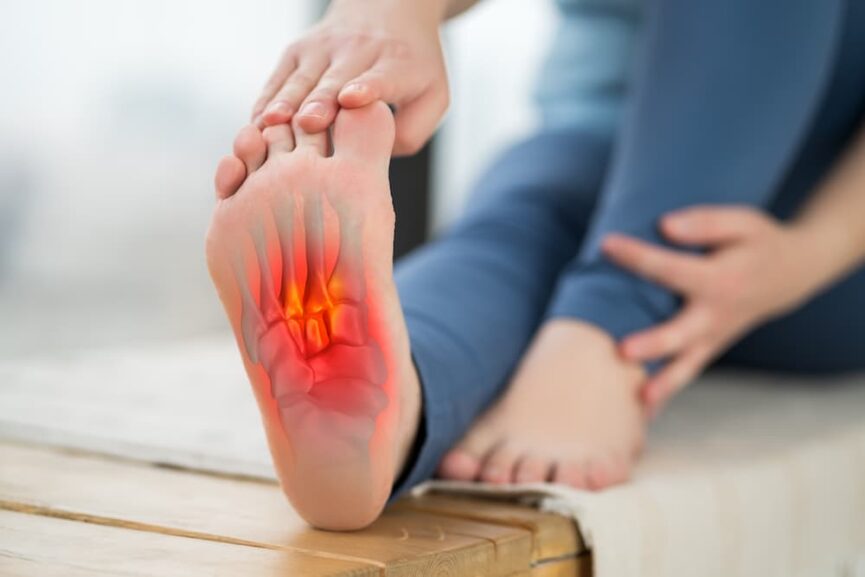You wake up in the morning and swing your feet over the side of the bed. As soon as you stand up, there it is – a stabbing pain in your heel or the bottom of your foot. Plantar fasciitis is a common problem for people, affecting roughly 10% of the population. This condition is painful, it can interfere with activity, and it can also be hard to heal.
At RejuvenateYourHealth in Allentown, PA, we’ve helped many patients who are struggling to recover from plantar fasciitis. If you’re looking for relief, we would love to show you how you can heal and get on with your active life.
What is Plantar Fasciitis?
On the underside of your foot is a tough, fibrous band of tissue that runs from your heel to your toes. This is your Plantar Fascia, and it holds the bones of your foot in place and forms your foot’s arch. When it’s healthy, it keeps your foot strong and able to take the constant impact of your feet hitting the ground.
However, if your feet take too much abuse, this important band can become inflamed. This can be caused by standing too long, exercising on a hard surface, spending too much time in shoes without adequate support, or being barefoot too long.
How Do You Know If You Have Plantar Fasciitis?
This painful foot condition is fairly common; about one in ten people will experience it at some point in their lives. That’s not great news for sufferers because it’s a painful condition that can be resistant to treatment. It usually shows up as a pain that runs along the bottom of your foot or in your heel. It’s often worse in the morning or any time you put weight on the affected foot after a period of inactivity.
Plantar fasciitis will often feel better after a few minutes of walking, especially when you first develop the condition. But over time, the pain will get worse and increase with activity.
A doctor will diagnose plantar fasciitis by examining your feet and asking about your symptoms. They may order some imaging, such as an X-ray or ultrasound, to make sure your pain isn’t caused by another condition, like a possible stress fracture.
Treatments for Plantar Fasciitis
Unlike some injuries, plantar fasciitis doesn’t usually go away on its own. The inflammation is in a part of the body that gets a lot of pressure every day, making it hard to give it a chance to heal. It also doesn’t get a great deal of blood flow, which makes it even more of an uphill battle to deal with the damage and inflammation.
Some of the recommended treatments for plantar fasciitis include:
- Rest
- Icing the area
- Supportive shoes or orthotics
- Immobilize the foot with a walking boot
- Corticosteroid injections
At RejuvenateYourHealth, we offer two advanced and promising treatments for plantar fasciitis: Platelet-Rich Plasma and Extra Cellular Matrix-Stem Cell Therapy. Both of these treatments use injections to deliver the body’s own healing substances to encourage the restoration of injured tissues. We have found these treatments to be an excellent option for plantar fasciitis, as well as many other injuries. To determine which approach would be best for you, we urge you to come in and speak to an expert about the options.
Choose RejuvenateYourHealth for Plantar Fasciitis Treatment in Allentown, PA
If you’re living with the pain of Plantar Fasciitis, we would love to talk to you about how we can help you. For more information about our cutting-edge treatments, we invite you to contact us today. You don’t have to suffer when there are treatment options that can get you back on your feet without pain.
Image Source: Staras / Shutterstock

